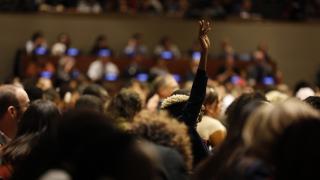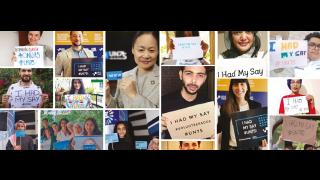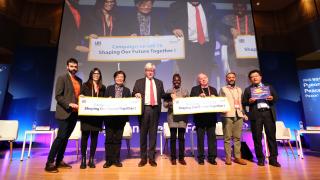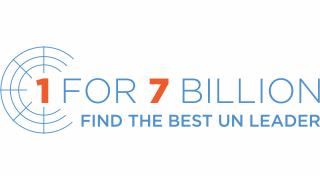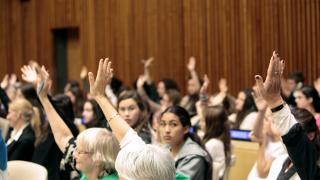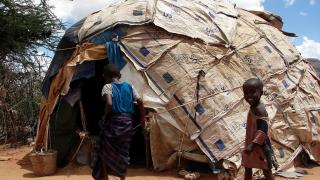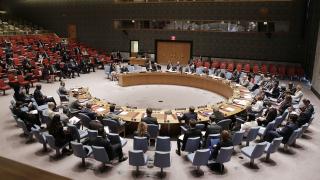
Rachel Madenyika, UN Representative, Quaker United Nations Office in New York
The new Secretary-General is entering the UN at a time that requires crucial decisions for peacebuilding. The UN has responded to the increase in conflict and insecurity throughout the world by acknowledging that peacebuilding needs to take place before, during and after the outbreak of conflict. Such a shift within the UN towards ‘sustaining peace’ recognises the primacy of politics while also stressing an approach that links security, development and human rights. This new concept, together with the peace mandate of the 2030 Agenda, could help reorient the UN’s efforts to sustain peace and accomplish the spirit of the UN Charter.
To do this, the Peacebuilding Commission (PBC) needs to be strengthened. The PBC was initially set up in 2005 to be more creative and flexible compared to, for instance, the Security Council. It was intended as a body to propose and advise on integrated peacebuilding approaches, and push forward action to reconstruct societies and their institutions in the aftermath of conflict. While acknowledging that civil society is not monolithic, the UN’s peacebuilding work would benefit from more systematic engagement with civil society. Indeed, the inclusion of diverse sources of civil society expertise is crucial to ensuring the success of the renewed UN peacebuilding approach.
First, to effectively fulfil its mission, the PBC must measure its success through its impact on the people it seeks to support, and involve civil society. This requires strategies and practices both at headquarters and at the country level, engaging with a range of perspectives. On this front, the PBC should establish a strategy to create feedback loops for civil society monitoring and assessments of its activities both in New York and in country.
Second, civil society can play a crucial role in the design, implementation and evaluation of peacebuilding projects funded by the UN Peacebuilding Fund. To facilitate this, the Peacebuilding Fund should continue the trend that began in 2016 with the broadening of funding eligibility to incorporate the direct funding of international NGOs. This initiative should be expanded by increasing the capacity of local organisations to apply for such funding, since they are best placed to guide the UN on the local needs and context.
Third, the most powerful lever of the PBC is its convening power. The PBC can enhance its effectiveness by including different perspectives, approaches and feedback from the communities that are most impacted by its work. The PBC could be more systematic in including civil society in its activities, and provide greater transparency to its work by providing more notice of PBC meeting dates and making preparatory documents available to civil society.
It is a rare occasion that a major UN member state body has the opportunity to reinvent itself. It is clear that strengthened and institutionalised engagement with civil society will be required as the PBC takes the next steps towards implementing the new ‘sustaining peace’ agenda. By supporting more effective civil society involvement, the new Secretary-General can enhance the role of the PBC as a place where longer-term national and regional strategies for sustainable peace are articulated, refined, implemented and supported.
About the author
Rachel Madenyika is a UN Representative at the Quaker United Nations Office in New York, where she leads the work on the prevention of violent conflict.
Photo: The UN Security Council considers a report of the Peacebuilding Commission. Copyright UN Photo/Evan Schneider

